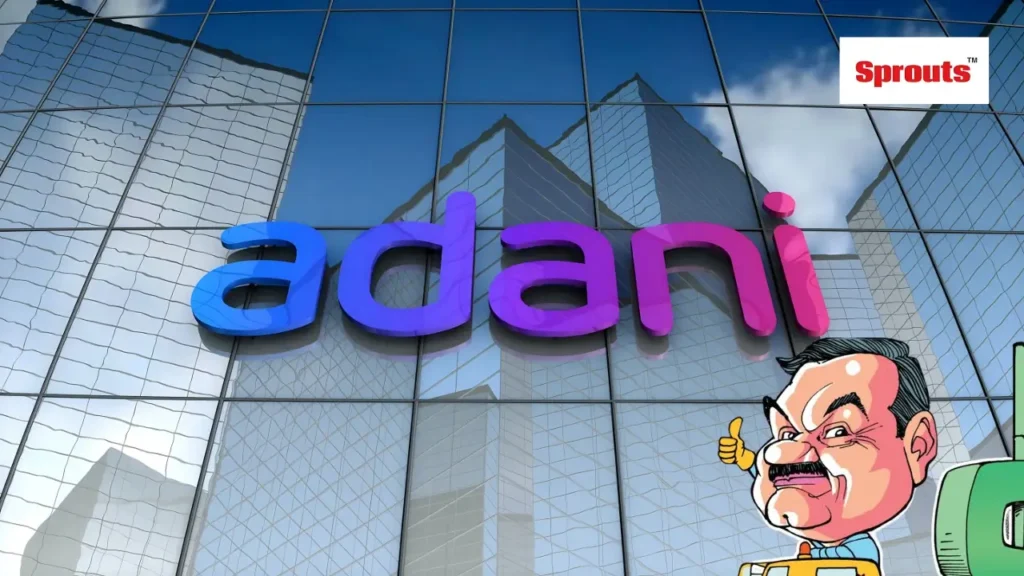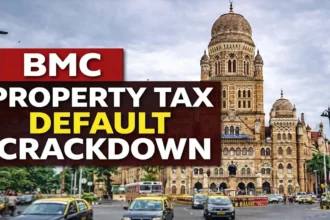Adani Bags 559 Acres at Half Price in Maharashtra!
• MIDC Favors Adani Despite ₹7,000 Cr Deficit
• Taloja Land Windfall: Adani May Earn ₹9,000 Cr!
• Industrial Land, Political Deals? MIDC Under Fire
Unmesh Gujarathi
Sprouts News Exclusive
Contact: +91 9322755098
- Adani Bags 559 Acres at Half Price in Maharashtra!
- • MIDC Favors Adani Despite ₹7,000 Cr Deficit
- • Taloja Land Windfall: Adani May Earn ₹9,000 Cr!
- • Industrial Land, Political Deals? MIDC Under Fire
- Maharashtra Govt Favors Adani Again: MIDC Grants 559 Acres at Discounted Rates, Raises Red Flags
- MIDC Loses, Adani Gains? Questions Mount Over Public Asset Use
- Was a Phased Land Allotment More Prudent? Experts Say Yes
- Land Acquired from Farmers, Given to Corporates: A Disturbing Trend
- Sprouts SIT Calls for Transparency and Independent Probe
- Also Read: POSH Act Misused to Silence Employees at Oberoi Hotel.
- Related Article: Anil Ambani’s Financial Mirage Unveils ₹17,000 Cr Fraud.
- Maharashtra’s Land Policy at a Crossroads
Maharashtra’s MIDC has sparked controversy by allotting 559 acres of prime Taloja industrial land to Adani Pvt Ltd at concessional rates. Despite a ₹7,000 crore MIDC deficit, the land will be commercially sublet by Adani, potentially reaping ₹9,000 crore profits. Questions arise over favoritism and flawed industrial policy.
Maharashtra Govt Favors Adani Again: MIDC Grants 559 Acres at Discounted Rates, Raises Red Flags
Adani Gets Prime Taloja Land at Nearly Half Market Rate
In a controversial move, the Maharashtra Industrial Development Corporation (MIDC) has allotted an additional 159 acres of industrial land to Adani Pvt Ltd in the Taloja Industrial Zone, following a prior allocation of 400 acres. What’s raising eyebrows is that this land is being offered at a significantly reduced price — just ₹15,460 per square meter — when the current market rate ranges from ₹35,000 to ₹40,000 per sq.m.
Even more alarming is that Adani Pvt Ltd has been authorized to sublet or lease this land to other companies at commercial rates — potentially three to four times higher than what it paid MIDC. As per real estate estimates, Adani could earn over ₹9,000 crore from this land parcel of 559 acres, which it secured at barely ₹3,200 crore.
Click Here To Download the News Attachment
MIDC Loses, Adani Gains? Questions Mount Over Public Asset Use
Under the agreement, Adani’s firm is allowed to lease this land at market-linked commercial rates despite acquiring it under subsidized industrial-use terms. Experts say this move not only undermines MIDC’s own revenue goals but also sets a dangerous precedent for public-private partnerships.
In a first for MIDC’s 50-year history, the agency recorded a budgetary deficit of ₹7,000 crore last year. Critics, including insiders from the state’s industrial policy departments, are questioning why MIDC would continue to “gift” public land at throwaway prices, especially to one of India’s richest business conglomerates.
The Sprouts News Investigation Team (SIT) spoke to high-ranking industrial officials who confirmed that there was no real need to allocate 559 acres for Adani’s proposed project, which reportedly includes data centers and IT parks. “Such projects typically require around 100 acres, not more. The rest will be monetized by leasing it out — which is precisely what Adani plans to do,” the officer said.
Was a Phased Land Allotment More Prudent? Experts Say Yes
Policy analysts and former MIDC executives have criticized the decision not only for its scale but for its one-time bulk handover. Instead of giving the entire parcel at once, MIDC could have opted for a phased allotment based on actual project progress, they argue. Such a strategy would have ensured better compliance, higher revenue, and public transparency.
Sources within the Sprouts News Investigation Team (SIT) confirmed that land allotments of this scale are often preceded by developer performance audits, which do not seem to have been conducted thoroughly in this case. The lack of stringent due diligence and the deviation from past industrial land allotment norms raises concerns of favoritism and regulatory bypass.
Land Acquired from Farmers, Given to Corporates: A Disturbing Trend
This controversy is not an isolated event. Over the past few years, MIDC has been accused of buying large tracts of land from farmers at minimal compensation, only to allocate the same land to private players — especially corporate giants — at heavily subsidized rates. This model of “land redistribution” benefits only a handful of companies while stripping local communities of long-term development opportunities.
In the Taloja case, land that should have supported MSMEs or local enterprises has instead been handed over to a conglomerate with ample capital and influence. Many stakeholders now demand a public audit of MIDC’s land bank, pricing models, and policy decisions post-2022.
Sprouts SIT Calls for Transparency and Independent Probe
Given the scale and implications of this land deal, the Sprouts News Investigation Team (SIT) calls on the Maharashtra government to initiate an independent probe into the MIDC-Adani agreements. There is a growing sentiment that public assets are being sacrificed for private profit, and unless checked, this could set a precedent that undermines trust in government institutions.
The SIT also recommends that the Comptroller and Auditor General (CAG) review recent land transactions under MIDC and that the State Industries Department publish a white paper detailing how land pricing and project justifications are handled in such mega allocations.
Also Read: POSH Act Misused to Silence Employees at Oberoi Hotel.
Related Article: Anil Ambani’s Financial Mirage Unveils ₹17,000 Cr Fraud.
Maharashtra’s Land Policy at a Crossroads
At a time when Maharashtra is struggling with industrial decline, budget deficits, and farmer unrest, the decision to favor a powerful business group over public interest is bound to attract scrutiny. The Adani-MIDC land deal is more than just a real estate transaction — it’s a test of policy integrity, governance ethics, and democratic accountability.
The people of Maharashtra deserve answers. And Sprouts News Investigation Team (SIT) is committed to finding them.
Adani Group controversies:
• The Adani Group, one of India’s largest conglomerates, has been under the scanner for multiple high-profile controversies in recent years. A major turning point came in 2023 when U.S.-based Hindenburg Research accused the group of stock manipulation, accounting fraud, and the use of offshore shell companies to inflate share prices. The fallout wiped out over $100 billion in market value, triggered a Supreme Court-monitored SEBI probe, and raised serious concerns about regulatory oversight in India’s capital markets.
• Beyond stock market concerns, the group has faced repeated allegations of excessive debt, conflict of interest, and favorable treatment by authorities. Adani’s aggressive expansion into airports, ports, and energy projects raised alarms about systemic financial risks due to over-leveraging. Several of the group’s projects have also been linked to land acquisition disputes, especially in Maharashtra, Jharkhand, and Gujarat, where farmers and tribal communities alleged forced evictions and inadequate compensation.
• Environmental violations have further marred the group’s image. From the controversial Carmichael coal mine in Australia to the Mundra Port in Gujarat and Vizhinjam Port in Kerala, Adani has faced criticism for damaging sensitive ecosystems and violating green norms. In many cases, local protests have erupted over coastal erosion and displacement linked to its infrastructure projects, leading to scrutiny from both domestic and global watchdogs.
• Adani’s 2022 takeover of NDTV sparked debate over media freedom, with critics calling it a hostile move aimed at silencing independent journalism. The group’s close proximity to political power has also led to frequent allegations of crony capitalism, especially concerning privatization bids for airports and coal blocks. With ongoing investigations, regulatory delays, and international criticism, the Adani Group continues to remain at the center of India’s most significant corporate governance debates.



















